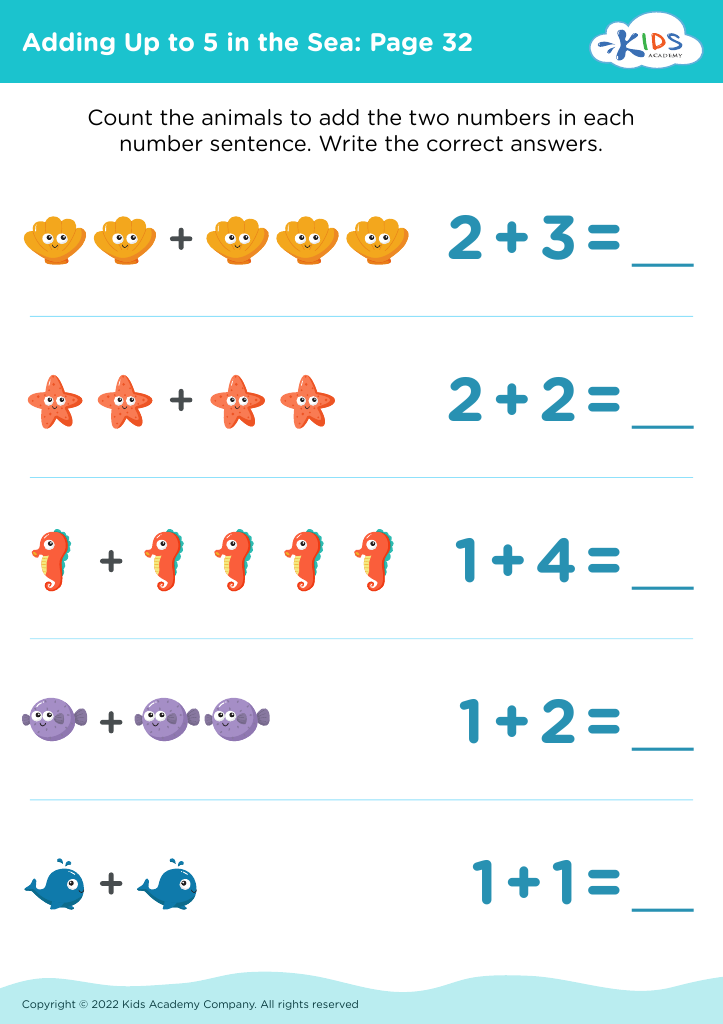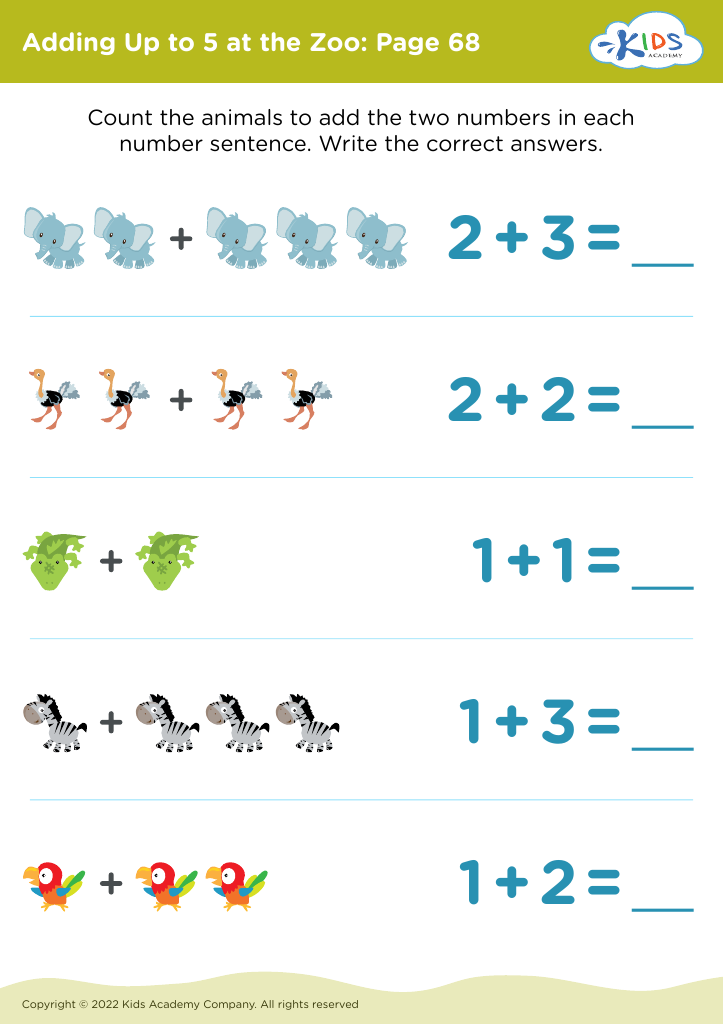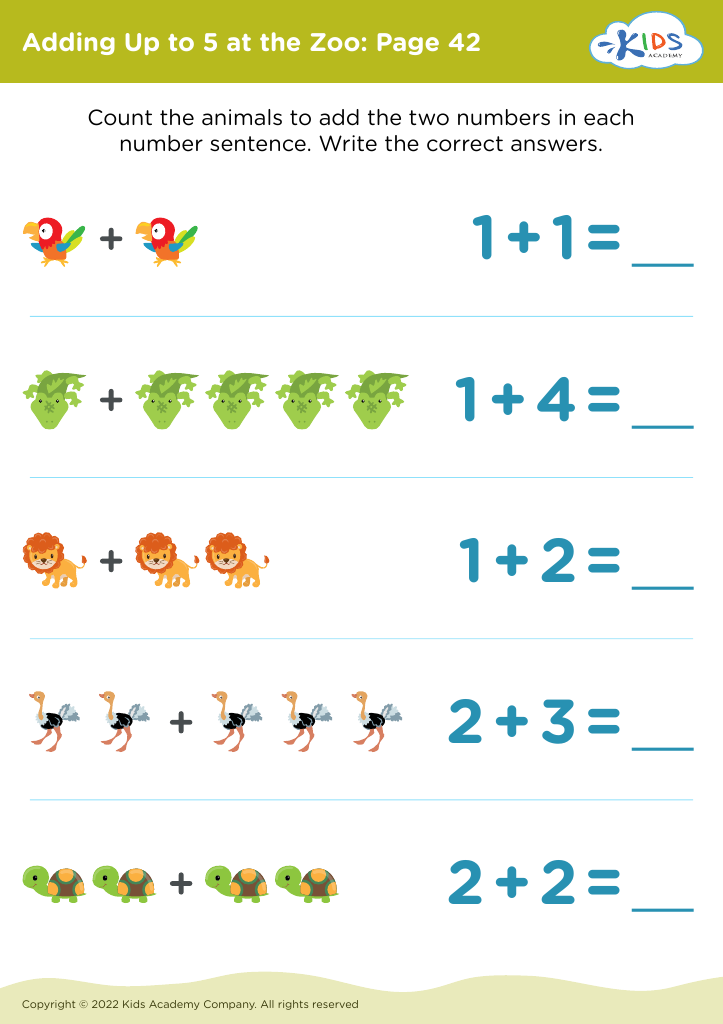Following instructions Adding Up to 5 Worksheets for Ages 4-9
3 filtered results
-
From - To
Introduce your child to the foundational skill of following instructions with our engaging "Adding Up to 5 Worksheets" designed for ages 4-9. These worksheets not only reinforce basic math concepts but also encourage kids to listen carefully and adhere to directions. Children will complete fun activities that require them to add small numbers, improving their number sense and mathematical reasoning. Each worksheet is crafted to keep young learners engaged while enhancing their ability to follow directions — a crucial skill for academic success. Perfect for home or classroom use, these worksheets make learning both enjoyable and educational! Explore now for fun-filled math practice!
Following instructions and mastering basic addition, particularly adding up to 5, are foundational skills for children aged 4-9 that have far-reaching implications for their development. For parents and teachers, this learning milestone signifies the child's ability to understand and process information effectively. When children follow instructions, they learn essential executive functioning skills, such as attention, organization, and compliance. These skills are crucial as they begin to navigate more complex tasks in academics and interpersonal situations.
Additionally, adding up to 5 is a critical early math skill that sets the stage for more advanced arithmetic and problem-solving abilities. Mastery of this simple addition fosters confidence in young learners and strengthens their numerical understanding. It can also lead to a positive attitude toward math, encouraging a deeper engagement with numbers and shapes as they progress through their education.
Moreover, these skills dovetail with everyday life, from counting objects during playtime to understanding simple transactions during shopping. By emphasizing the importance of following instructions and basic math, parents and teachers can equip children with the tools they need for lifelong learning and problem-solving, ultimately contributing to their success in school and beyond.
























